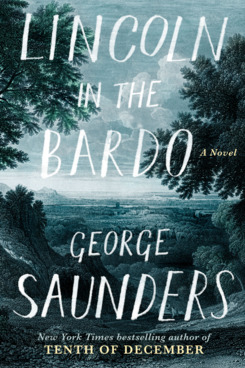 Is there any figure more iconic of America, in both the physical and philosophical sense, than Abraham Lincoln? Is there even a contest to be had? His presidency is the stuff of classic historical drama. A single man charged with keeping an adolescent nation intact as it violently tears itself apart over ideals it can’t live up to. Our library alone has over 300 items related in some way to the 16th President of the United States. We’ve soaked in so much Lincoln through classrooms, museums, monuments, and movies, that a towering mythology looms over any semblance of a human being.
Is there any figure more iconic of America, in both the physical and philosophical sense, than Abraham Lincoln? Is there even a contest to be had? His presidency is the stuff of classic historical drama. A single man charged with keeping an adolescent nation intact as it violently tears itself apart over ideals it can’t live up to. Our library alone has over 300 items related in some way to the 16th President of the United States. We’ve soaked in so much Lincoln through classrooms, museums, monuments, and movies, that a towering mythology looms over any semblance of a human being.
But renowned short story author, George Saunders decided to base his first full length novel around a very different Abraham Lincoln story.
Lincoln In The Bardo presumes you already know the usual Lincoln lore and historical context. But amidst all the burdens of navigating our nation’s most trying moment, Lincoln’s eleven year old son Willie became gravely ill and died in the White House. There were actual reports that Lincoln was so grief-stricken that he returned several nights to Willie’s crypt just to hold the body. From this small detail, Saunders spins a mystical tale that takes place in a purgatorial afterlife (the bardo) pieced together from the perspectives of colorful ghosts and historical testimony. The central task for the gang of ghosts is to move Willie Lincoln out of the bardo completely over to the other side of death.

Saunders is a one-of-a-kind voice in the way he captures the human experience, which is why he is possibly my favorite contemporary author. I’m not exaggerating when I say his short story collection, Tenth of December, was life altering. There is a unique thread of kindness (or maybe it’s just radical empathy) in all of Saunders’ work that ties together the tragedy and the hilarity of our interactions with one another through life’s circumstances. Tenth of December and many of his essays forever changed my view of others in relation to myself.
In Lincoln In The Bardo, we see Lincoln as a grieving father, and actually not much more than that. I found myself grieving with him. The perspectives constantly shift and at times we are a child as we read from Willie’s perspective. More importantly, we understand right away that the ghosts have their own pasts we will discover. This is as much their story as it is Abraham and Willie’s and I cared for these spirits, even as I sometimes struggled to piece together what was going on in the broader narrative.
You’d think this is a heavy read, and sometimes it is, but often it’s surprisingly lighthearted.
I should note this book is also peculiar in form. It looks like a transcript, plainly laying out the dialog followed by who said or wrote what. The characters don’t talk to each other. They talk straight to you. It is as if you are watching a documentary cutting back and forth between persons interviewed separately, at different times, sharing their recollections of events. I had to adjust to the rhythm. The fragmentary form could seem gimmicky, but I think in the hands of Saunders it underlines how much of experience is perception and memory. The form can also be a playful way to reveal new characters and unfold the story.
To get a sense of this, here’s a snippet from the audiobook featuring 166 different voices!
[soundcloud url=”https://api.soundcloud.com/tracks/308047383″ params=”auto_play=false&hide_related=false&show_comments=true&show_user=true&show_reposts=false&visual=true” width=”100%” height=”450″ iframe=”true” /]
This same story minus the historical grounding of Lincoln, probably would not have intrigued me. Early on, I grew frustrated that we only got Lincoln in fragmentary glimpses, but I eventually realized it had a powerful equalizing effect, he was another bit character in a story bigger than our history or our nation. It became evident as I continued reading that Abraham Lincoln is the perfect vessel for Saunders because he is an icon of human experience embodying all of our paradoxes, and because of this, you can tell quite a story out of even the smallest details.
Check out Lincoln In The Bardo from the library, in whatever format you prefer.
Categories: Books and More
Tags: Books and More
